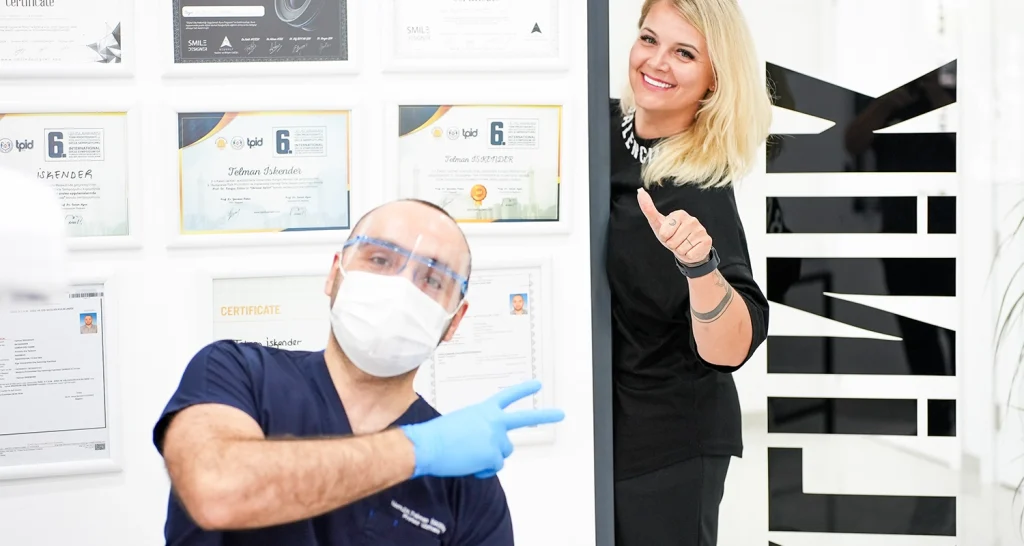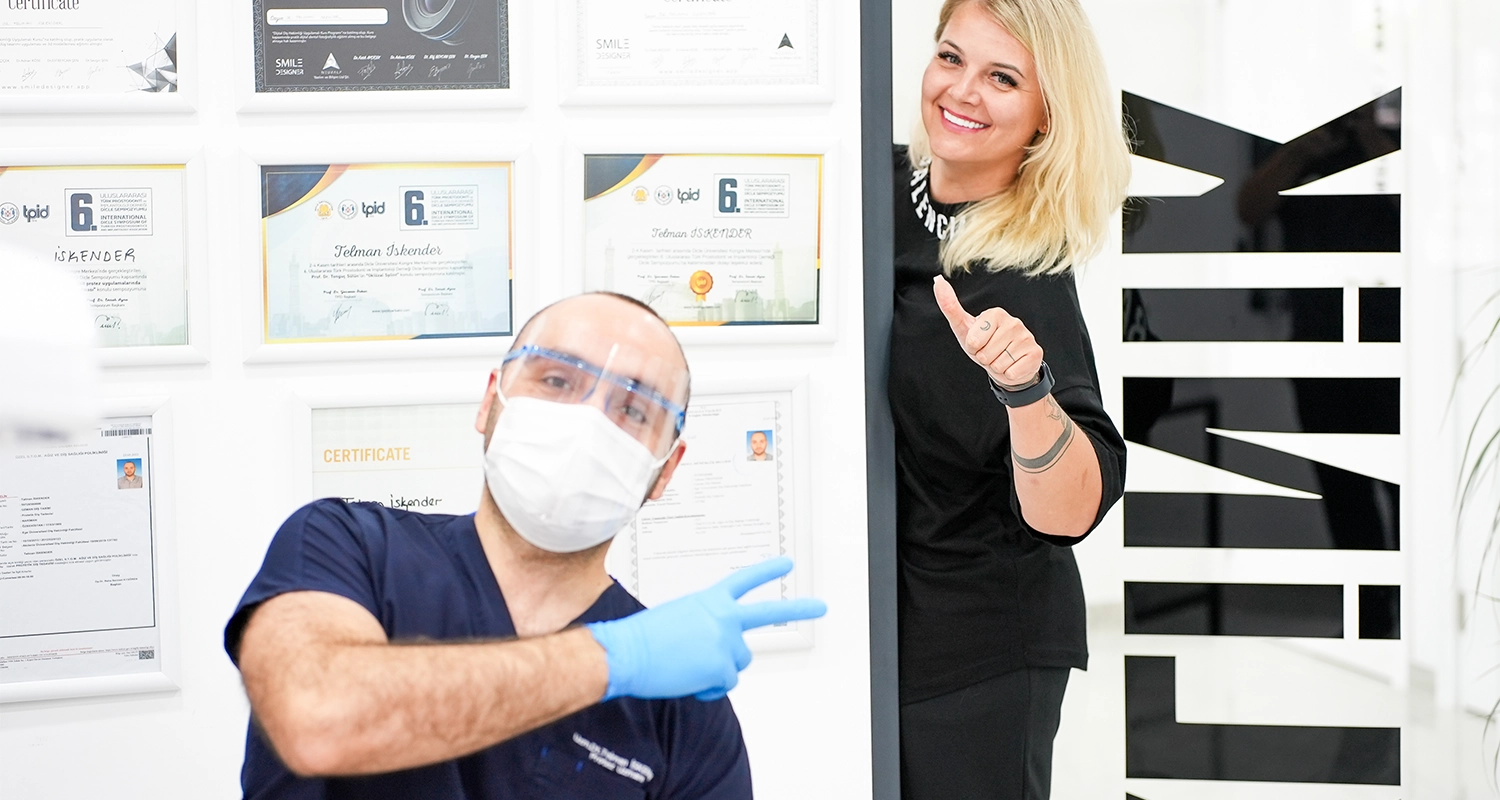Soft Tissue Surgery
What is Soft Tissue Surgery?
Soft tissue surgery is a sub-branch of dentistry and involves the surgical treatment of soft tissues in the mouth, such as gums, buccal mucosa, lips and tongue. These surgical procedures are often used to treat gum problems, aesthetic corrections and other soft tissue pathologies. Soft tissue surgery helps dentists contribute to oral health and helps patients achieve a healthy appearance and function of their oral tissues.

Scope of Soft Tissue Surgery
The scope of soft tissue surgery is quite wide and includes various surgical procedures. Some of these procedures include:
- Gum Surgery: Gum surgery includes surgical procedures to improve the health and appearance of the gums. Procedures such as gum trimming, gum removal (gingivectomy) and gum grafting are included in this category.
- Mucogingival Surgery: Mucogingival surgery is surgical procedures to correct or reshape the tissues in the transition zone between the gingiva and the mucosa inside the cheek. This type of surgery is often necessary for aesthetic improvements and the successful application of implant-supported prostheses.
- Gum Graft: A gum graft is a surgical procedure used to prevent or correct gum recession or thinning. The graft can be obtained from the patient’s own tissue or synthetic materials and is used to treat aesthetic problems caused by gum recession.
Soft tissue surgery plays an important role in improving the health, aesthetics and function of the oral tissues. These surgical procedures are usually performed under local anaesthesia and are usually associated with minimal discomfort for the patient and a short recovery period.
Application Areas of Soft Tissue Surgery
Soft tissue surgery covers a wide range of surgical procedures. These procedures are used to improve the health, aesthetics and function of the oral soft tissues.
1. Gum Surgery
Gum surgery includes a range of surgical procedures used to treat gum disease and improve the health of the gums. These procedures are usually performed for conditions such as gum recession, gum swelling or treatment of gingivitis.
2. Gingivectomy (Gum Removal)
Gingivectomy is a surgical procedure to correct excess or abnormal growth of the gums. The areas with excess gums are surgically removed to correct the gum line.
3. Mucogingival Surgery
Mucogingival surgery involves surgical procedures to correct or reshape the tissues in the transition zone between the gingiva and the mucosa inside the cheek. These procedures are often necessary for aesthetic improvements and the successful implementation of implant treatments.
4. Gingival grafting
Gingival grafting is a surgical procedure used to prevent or correct gum recession or thinning. The graft can be obtained from the patient’s own tissue or synthetic materials and is used to treat aesthetic problems caused by gum recession.
5. Gum Correction Surgery
Gum correction surgery includes surgical procedures performed to correct the natural line of the gums or to correct an aesthetic problem. These procedures are usually performed when gum recession or gum height needs to be corrected.
Soft tissue surgery plays an important role in solving oral health problems and offers an effective option to improve the health, aesthetics and function of oral tissues.

Advantages of Soft Tissue Surgery
Soft tissue surgery offers a number of advantages to improve the health, aesthetics and function of the oral soft tissues.
1. Aesthetic Development
Soft tissue surgery can significantly improve the aesthetic appearance of intraoral tissues. For example, surgical correction of aesthetic problems such as gum recession or abnormal growths can help improve smile aesthetics.
2. Protection of Gum Health
Soft tissue surgery is an effective tool for the treatment of gum diseases and the maintenance of gum health. Treatment of problems such as gingival recession, gingivitis or gum recession is important to maintain the health of the gums and reduce the risk of infection of intraoral tissues.
3. Supporting Implant and Prosthesis Applications
Soft tissue surgery may be necessary for the successful implementation of other dental treatments such as implants and dentures. For example, gum correction surgery may be required to create a suitable gum structure in implant applications or to ensure the correct fit of dentures.
These advantages of soft tissue surgery make it an important tool for improving patients’ oral health and aesthetics. These surgical procedures are often associated with minimal discomfort and a quick recovery process, offering patients a healthy and aesthetic smile.
Who is Soft Tissue Surgery Suitable for?
Soft tissue surgery is a viable option for patients who are experiencing problems with various oral soft tissues and are looking for solutions. This procedure may be suitable for the following conditions:
- Those with Gum Problems: Patients who experience problems such as gum disease, gum recession, gum swelling, or gingivitis can be treated with soft tissue surgery. Surgical procedures can be used to restore gum health and improve gum tissues.
- Those who want aesthetic improvement: For aesthetic purposes, it may be necessary to correct the gum line or reshape the gum tissue tissues. Soft tissue surgery can help patients who want to improve the aesthetic appearance of the smile and achieve a more symmetrical smile.
- Those who need implant or prosthesis applications: For other dental treatments such as implants or dentures, it may be necessary to create a suitable gum structure. Soft tissue surgery can be used for gum correction or grafting procedures required for the successful placement of implants or the correct fit of dentures.
Soft tissue surgery can serve a wide range of patients and is considered an effective option for the treatment of different oral soft tissue problems. However, whether it is a suitable option for each patient should be determined after an assessment by a dentist.
Frequently Asked Questions About Soft Tissue Surgery
Frequently asked questions and answers about soft tissue surgery are given below:
Is Surgery Painful?
Soft tissue surgery is usually performed under local anaesthesia, so no pain is felt during the procedure. However, a slight discomfort or pain after the operation is normal. The pain can usually be controlled with painkillers and subsides within a few days.
How is the recovery process after treatment?
The healing process after soft tissue surgery varies depending on the patient’s condition and the complexity of the surgical procedure. However, mild swelling and tenderness can usually be observed in the first few days. To speed up the healing process, it is important to rest, apply ice and use medications recommended by the doctor.
Are the Results of Surgery Permanent?
The results of soft tissue surgery are usually permanent. However, it is important for the patient to pay attention to oral hygiene and regular dental check-ups. This can help maintain the surgical results for a long time.
What is the Cost of Treatment?
Soft tissue surgery treatment cost varies depending on the patient’s needs, the techniques used and the complexity of the procedure. It is best to consult with a dentist for a more precise cost estimate of the surgical procedure and treatment plan.
If you have other questions or concerns about soft tissue surgery, our dentist can provide you with more information and guidance.

